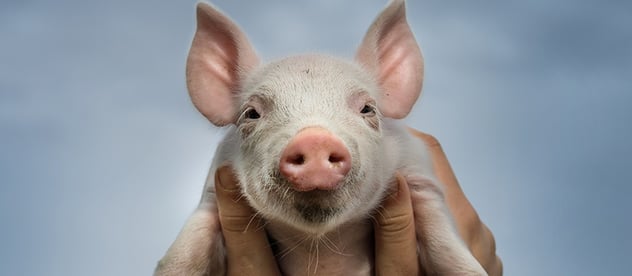
Sometimes the most revelatory meanings come from parables. Storytelling is an art and has been a part of the human experience since cave men started drawing pictures on cave walls, since troubadours roamed the countryside telling stories through their songs. Storytelling helps us make sense of the world.
One of the most effective ways of telling a story is through a parable. It’s a short, allegorical piece meant to teach a lesson. It’s told in words that convey images people can easily understand and often include animals and nature like "The Three Little Pigs" and "The Grasshopper and the Ant."
A Parable with a Powerful Lesson
Don Clifton in his book, Soar with Your Strengths, began his book with a parable called “Let the Rabbits Run” that speaks to the desire we have to make everyone good at everything. This story is about animals that live in a glen and lead a happy life, until the leaders decide that they want to start a school so they can be smart like people.
The students were a rabbit, a fish, a squirrel, an eagle and an owl. Let’s focus on the plight of the rabbit. His first course was in running, and he could run like lightening. In hopping, he could hop higher and faster than any of the other students, and he did very well in jumping as well. The rabbit felt very satisfied with his outstanding performance with things he succeeded at every day. In an effort to make the rabbit more “well rounded,” he was put in a swimming class—and it was a disaster. Oh oh, no matter whatever the instruction, he sunk to the bottom of the pond and had to be rescued. So he was put in a remedial swimming class. The same happened when they tried teaching him to fly. No matter how much instruction, he never could swim or fly, and he never felt proud of what he could do, but rather disappointed in himself for what he couldn’t do.
Humans do this when we send our kids to camp so they can be good at archery, kayaking, rock climbing, and zip-lining, only causing them to send letters to mom and dad to come and pick them up.
The Case for Focusing on Strengths
If you are a sales leader, please pay attention. We seem to be fixated on how to overcome our people's weaknesses. We spend so much time with the salespeople we manage and coach trying to “teach a rabbit to swim” that at best the result is only average—and the person we’re coaching is frustrated and unhappy. The key to unlocking performance and enabling the ordinary salesperson to become an extraordinary salesperson is to develop what’s right in front of our nose every day and that is their strengths, their talents.
A person’s talent cannot be missed if you’re paying attention—unless you’re only focusing on what that person can’t do. One’s strengths or talents is a part of his or her DNA and is obvious at an early age. It’s that part of someone's behavior that “fires” immediately in everyday situations. It’s those talents that you as a leader need to nurture. Nurturing is not a “one size fits all” approach. The best managers have a completely customized recipe for each person on their team.
Back to the pigs. People by and large have a negative perception of pigs' behavior even though they were the animals that were chosen to be leaders in George Orwell’s Animal Farm. I discovered that pigs have personalities. They are intelligent, and much like dogs, can learn their names in 2-3 weeks. They are social and have been known to work in pairs on farms. They can communicate by oinks, grunts and squeals. They can learn new behaviors.
But you can’t teach a pig to fly!


